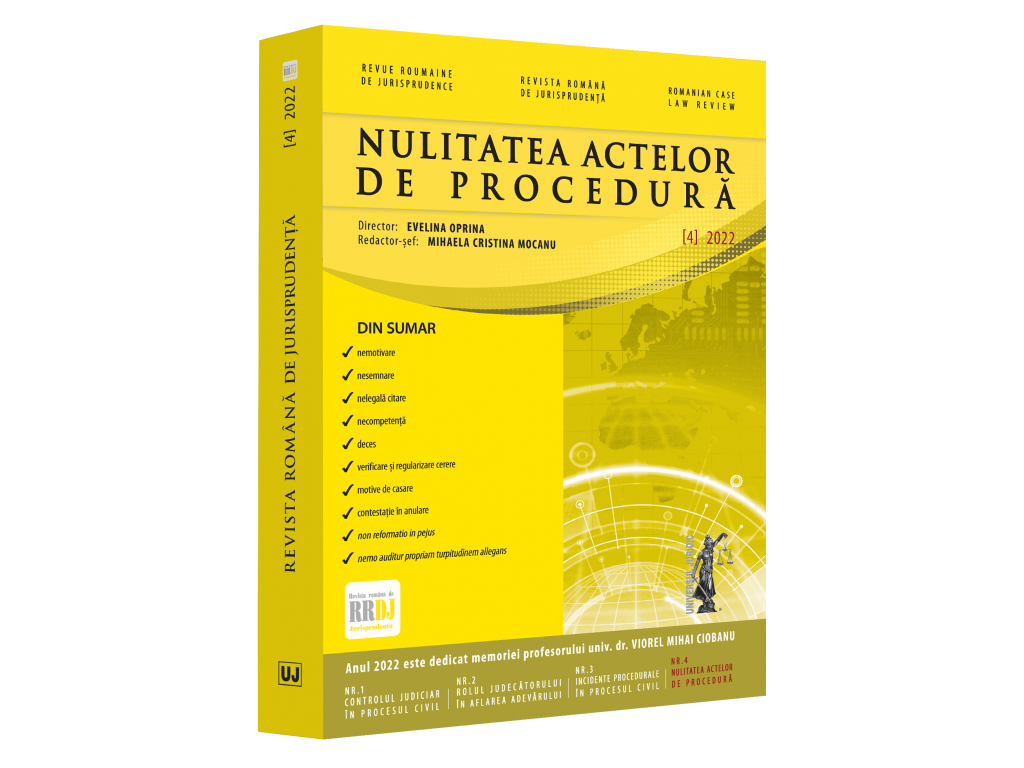The judge's role in finding the truth. Reconciling the principle of availability with the judge's interference in the limits of the court
Some procedural and substantive law aspects of invoking the invalidity of addenda to the employment contract
Abstract
The principle of availability is a real limitation of the principle of the active role of the judge.
Indeed, the right of disposition of the parties prevails in civil proceedings, and the judge cannot start ab initio from the idea that his duty is above this principle. However, to the extent that the parties show good faith in the course of the proceedings, but mistakenly omit certain aspects useful for the resolution of the case, the judge must intervene and fill in the gaps, by virtue of his active role.
Notwithstanding both the principle of availability of the parties and the principle of the active role of the judge, we consider that the principle of finding the truth prevails, this being the essential function of the civil process, to which is added that of the legality of the civil process, the judge being the guarantor of compliance with legal norms.
Even if only Art. 78 para. (1) of the Civil Procedure Code requires the court to forcibly introduce (without the parties' consent) a person into the case, the judge must also play an active role in situations where, although he cannot override the parties' opposition, he considers that the legal relationship at issue requires the introduction of a third party into the case.
In order to assess the need for legal qualification or reclassification of the application, two assessment criteria are relevant: (i) the real finality of the claim before the court, in relation to both the heads of claim and the factual grounds of the claim, and (ii) in the event of a discrepancy, the real possibility of examining the claim in the light of the factual situation described by the applicant, but in the light of the new legal grounds assessed by the court.
The judge has full discretion as to whether additional evidence should be taken or whether evidence proposed by the parties should be excluded. In this respect, the parties can only criticise the decision of the trial court (or the lower court) to reject the legally requested evidence.
The court of judicial review may at any time, of its own motion, invoke the ground of illegality of non-compliance with Article 22 of the Civil Procedure Code, being a ground of public order. On the other hand, the parties must bear in mind that the grounds of illegality based on Article 22 of the Civil Procedure Code may always be raised in the appeal proceedings, and, if they fail to do so and also have the appeal proceedings open, the appellant will no longer be able to raise criticisms on this subject, as Article 488(2) of the Civil Procedure Code.
Keywords: active role of the judge; principle of availability; finding the truth; limits of investigation; legality of civil proceedings.








